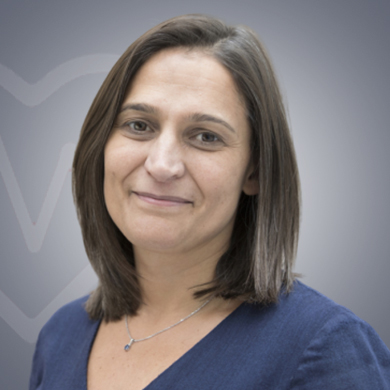
21 Years of experience
Speaks: English
A medical oncologist treats different types of cancer using different techniques like hormone therapy, chemotherapy, targeted therapy, or immunotherapy. A medical oncologist works with other specialists to design a treatment plan according to the type and nature of cancer, age of the patient, stage of cancer. They discuss cancer diagnosis with you, including the stage and type you have. They also assist you to manage the cancer symptoms as well as treatment side effects. The conditions that Dr. Susan Lalondrelle treats are listed below:
Symptoms and signs of cancer may vary from person to person and depend on the type of cancer, its location, the places cancer cells have spread. A few patients show no prominent symptoms until the cancer is far advanced. An individual with these signs and symptoms must consult their doctor. The symptoms might arise from noncancerous conditions. Some of the symptoms that cancer may cause are:
You can find Doctor Susan Lalondrelle in the clinic/hospital from 11 am to 5 pm (Monday to Saturday). The doctor is not available on Sunday. You can connect with the doctor or his attendant to confirm his/her availability because the doctor may not be available in the given time due to some personal reasons or any emergencies.
The below-listed popular procedures that Dr. Susan Lalondrelle performs are:
A medical oncologist uses chemotherapy for cancer treatment. It uses a combination of drugs to kill the cancerous cells in the body and prevents them from growing further. While chemotherapy could require a single drug, this is also given along with other drugs. Hormone therapy is a procedure that uses medicines to stop or lower the amount of hormones used by cancer cells to grow. Hormone therapy is used for the treatment of breast cancer, prostate cancer, ovarian cancer, and womb cancer.

Share Your Experience about Dr. Susan Lalondrelle

Medical Oncologist is a specialist who treats cancer through chemotherapy and other medications such as targeted therapy, and immunotherapy. He is considered the primary health care person for cancer patients. They closely work with the other medical professionals for the best results. A medical oncologist also continues with follow-ups and complete checkups of cancer patients after treatment. If cancer cannot be treated, medical oncologists use hospice or palliative care for the patients. Medical oncologists are primarily responsible for managing cancer.
A medical oncologist would suggest the below tests to be performed to diagnose cancer:
One of the most common test for cancer, biopsy is a sample of tissues extracted from a body part in order to examine it. A doctor recommends biopsy when a previous test suggests an area of tissues isn't normal.
An individual will see a medical oncologist when the primary care doctor suspects that the person has cancer. The primary doctor may use various diagnostic tests to diagnose a patient. If the tests shows signs of cancer, the primary care physician refers the patient to an oncologist. You need to see a medical oncologist if you experience the symptoms listed below: